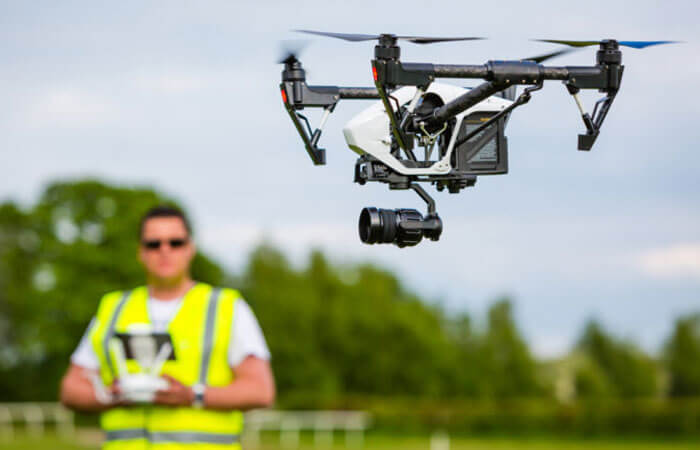Starting A Drone Pilot Career

New technologies almost always mean new career opportunities. After all, who had ever heard of a “social media manager” just a few short years ago? Drone technology is no different. The introduction of these advanced, small flying machines has brought certain jobs into reach of people who would have needed a pilot's licence and aircraft in the past. They've also helped invent entirely new jobs that no one had even considered before.
In a modern economy where jobs are often hard to come by and old careers are being eroded by technology, the drone industry offers a lot of potential. A skilled drone pilot should have no trouble finding work and it's a real chance to go into business for yourself. So let's talk about the ins and out of starting a drone pilot career.
The Opportunities Are Endless
Because drone technology is evolving so quickly, you might be surprised at the diversity of services that are now performed by our flying friends. The obvious ones are photography and videography, but even within these broad categories you get lots of variation. For example, real estate photography is a popular use of drones and of course all sorts of video, ranging from basic aerial videos to full-on Hollywood productions.
Machine vision technologies now also allow for things like photogrammetry and security work. There's also a lot of scope for drones in various industries that require inspection services, such as pipelines and electrical wiring. There are even drones now that can do things like clear ice from things or remove debris. Although these are pretty specialized systems. The bottom line is that we aren't even close to finding all the things that drones can be used for.
Why It's a Good Investment
If you move into a career as a drone pilot there are two points of investment. First of all, you're learning a set of valuable skills. There's there's actual skill of piloting your drone and then there are the specialized skills of your particular drone niche. As long as you stay up to date with the latest trends in drone business and tech, you'll never regret adding relevant skills you can sell to others to your repertoire.
The second point of investment is in the drone hardware itself. If you start your own drone business and actually own the equipment, you've got the tools for potential financial independence. There's always someone who needs professional drone services, but can't invest the time and money needed to do it themselves. If you can get in early as a trusted professional drone pilot, then you've got it made.
What Skills Do I Need?
So what does it take to have a career as a drone pilot? Well, obviously you need the ability to fly a drone properly. It's a good idea to start off by learning manual flight using a nano drone or micro drone. Not one of the expensive camera drones, any four-channel toy-grade drone will do. The idea is just to learn manual flight, which is the same on any multirotor drone. Speed and weight notwithstanding.
If your chosen drone career is mainly about creating video content, then you also need the right photography and videography skills. That means you have to know something about the art of taking a good photo or getting a good shot.
If you want to get into scientific and industrial drone applications, then you need to know how to use the specialized equipment and any job-specific procedures.
How does one acquire these skills? There isn't much regulation of specific drone applications, but there are drone flight schools popping up all over the world. So you can learn general flight skills there if you aren't the type to self-teach. The industry-specific stuff will have to be a combination of your own research and connecting with the right people.
Now, if you not only want to be a paid drone pilot, but want to start your own business, you also need the traditional business skills. After all, even a cutting edge business is still, well, a business. So the same financial, organisational and management skills are needed.
Study the FAA Part 107 Commercial Pilot Test
The last part of the puzzle is pretty important. Drones are still very new, so most governments are scrambling to regulate them. In the US, all drone pilots need to register with the FAA, but they don't need to be personally certified.
If you want to make money using a drone however, you need to get an operating permit. Also from the FAA. This involves registering, studying for a test, paying a fee and then passing the test. This isn't some cursory little test either, luckily there are some good FAA Part 107 study guides available online. The test contains much of the same theory that aircraft pilots have to master. If you don't study, you'll probably fail!
With that final hurdle out of the way, you should be all set to enter the competitive world of commercial drone flight. Good luck!
839GYLCCC1992




Leave a Reply